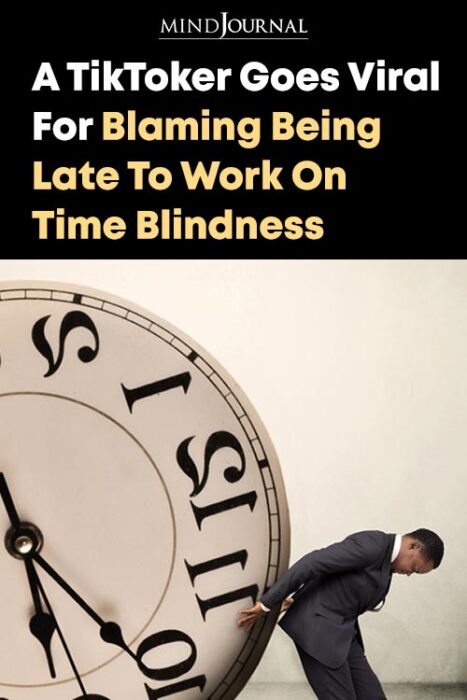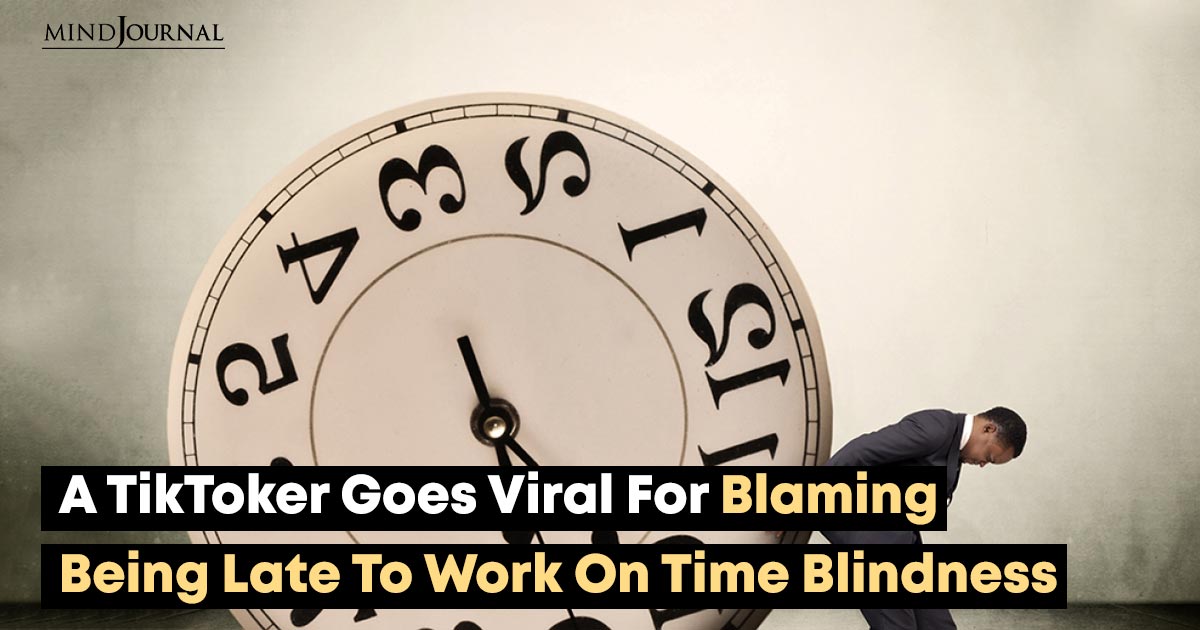In the age of social media, trends, and challenges quickly capture the world’s attention. Recently, a TikToker gained viral fame by making a video on time blindness. She related her chronic tardiness at work to time blindness.
As curiosity and interest escalate, questions arise about the authenticity of ‘time blindness’ as a legitimate condition versus a mere excuse.
The TikToker’s viral video recounted the alleged impact of time blindness on her punctuality, resonating with numerous viewers and sparking a widespread debate.
Time Blindness TikTok Video
In a heartfelt TikTok video, a TikTok user Chaotic Philosopher, who identifies as neurodivergent, talked about a culture that penalizes workers struggling with punctuality and being late to work is considered wrong.
As the video continued to gain popularity, divergent opinions about time blindness related to the causes of time blindness and the ways to deal with time blindness emerged among viewers. While some related to the challenges expressed in the video, others raised doubts about the concept’s validity as an all-encompassing explanation for tardiness and being late to work.
Read more here: 21 Struggles Only People Who Are “ALWAYS LATE”
However, her emotional tiktok video disclosure faced immediate backlash, as some social media users accused her of fabrication, suggesting she should simply use an alarm for not being late to work. Meanwhile, discussions swirled about whether ‘time blindness’ would become a new Gen Z trend.

To shed light on the topic, Stephanie Sarkis, a psychotherapist, and expert in ADHD, talked to USA Today and clarified the concept: “Time blindness is a genuine difficulty with perceiving time, gauging how much time has passed, and estimating how long it takes to complete tasks. It can significantly impair individuals. This phenomenon has been extensively studied and time blindness is a real issue.”
What Is Time Blindness? Causes Of Time Blindness
Time blindness, also known as temporal processing disorder, is a condition in which an individual experiences difficulties with accurately perceiving and managing time. People with time blindness may have trouble estimating how much time has passed, struggle to gauge the duration of activities, and find it challenging to plan and organize their schedules effectively.
The causes of time blindness are not fully understood, but research suggests that there are various causes of time blindness and it can be associated with certain neurological and cognitive conditions, such as:
Neurodevelopmental Disorders:
Time blindness is often linked to neurodevelopmental disorders like Attention Deficit Hyperactivity Disorder (ADHD) and Autism Spectrum Disorder (ASD). Individuals with these time blindness conditions may have challenges in executive functions, including time management.
Brain Injuries:
Traumatic brain injuries and certain neurological conditions may disrupt the brain’s ability to process time-related information accurately.
Genetics:
There may be a genetic component to time blindness, as some cases seem to run in families.
Neurological Differences:
Variations in brain structure and function may contribute to the perception of time in some individuals and lead to time blindness.
It’s important to note that time blindness can affect people differently, and its severity can vary from person to person. While some individuals may experience significant impairments in their daily lives due to time blindness such as being late to work while others might have milder difficulties due to time blindness.
Read more here: ADHD Is A Fictitious Disease: A Shocking Deathbed Confession
Ways To Deal With Time Blindness?
Certainly, coping with time blindness can be challenging. However, there are various ways to deal with time blindness. These ways and techniques are available to help individuals better manage their time effectively:
Psychoeducation: Understanding the condition and its impact can help individuals and their support systems develop empathy and effective strategies against time blindness.
Cognitive Behavioral Therapy (CBT): CBT can help individuals develop better time management skills and coping mechanisms.
Timers and reminders: To deal with time blindness you can use alarms, timers, and reminders can help individuals stay on track and manage their time more effectively.
Structured routines: Establishing consistent daily routines can aid in creating a sense of structure and predictability that will help you fight against time blindness.
Talking about the TikTok video Sarkis said to USA Today that individuals who don’t experience time blindness, expressing frustration or exasperation towards someone who does will not help resolve the issue.









Leave a Reply
You must be logged in to post a comment.